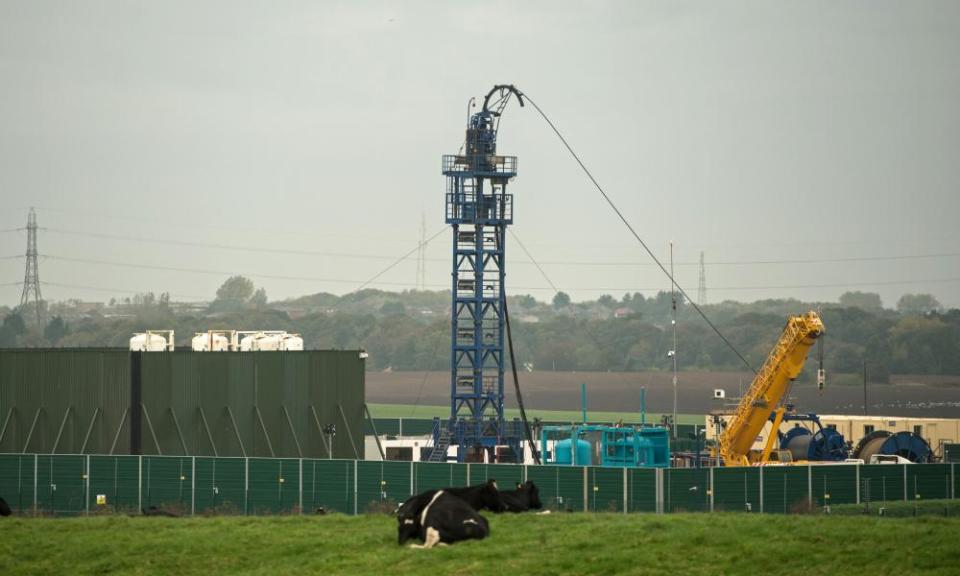Fracking at Lancashire site paused after seismic event detected

Fracking operations in Lancashire have been shut down after seismic activity was detected. The move came a little more than a week after the process was restarted in the UK for the first time since it was banned in 2011.
Cuadrilla Resources, which is carrying out the operations at its Preston New Road site, confirmed it paused work early on Tuesday as a precaution because of the microseismic event, which was measured at a magnitude of 0.4 and within the limit allowed by UK authorities.
“This is an extremely low level of seismicity, far below what could possibly be felt at the surface but classed as an amber event as part of the traffic light system in place for monitoring operational activity,” the company said on Tuesday evening.
“As such, we are required to reduce the rate we are pumping fracturing fluid once it has been detected. In fact, we have adopted extra caution and have stopped pumping for the day.”
Campaigners have expressed concern that fracking, which involves directing liquid at high pressure at subterranean rocks to open up fissures and release oil or gas for extraction, causes earthquakes.
After fracking restarted last Friday, the British Geological Survey recorded a series of small tremors. The process was stopped in the UK in 2011 after two earthquakes, one reaching a magnitude of 2.3, were triggered in close proximity to the site of shale gas test drilling. A subsequent report found that it was highly probable that the fracking operation caused the tremors.
According to the British Geological Survey, Tuesday’s seismic event was the sixth detected in the area since fracking restarted. It was also the largest of the six, though still undetectable on the surface.
Under the traffic light system of the Oil and Gas Authority, the UK regulator, a firm is required to stop fracking if any activity greater than 0.5 on the local magnitude scale, defined as a red alert, is detected. Any activity from 0.0 to 0.5 is defined as an amber alert and requires firms to proceed with caution.
In its statement, Cuadrilla said: “Seismicity will, as always, continue to be monitored closely around the clock by ourselves and others and we plan to continue hydraulic fracturing again in the morning.
“Local residents should be reassured that the monitoring systems in place are working as they should. These are tiny seismic events that are being detected by our monitors, as we fracture the shale rock, and are not capable of being felt, much less cause damage or harm. Regulators have been informed.”
Gail Hodson, of the campaign group Frack Free Lancashire, said: “It is only what we’ve been expecting as it is an undisputed consequence of extreme energy extraction.
“It highlights the fact that all the regulation in the world, even if it was gold standard, cannot stop seismic activity. The traffic light system was cooked up as a salve to try to reassure the public and those reassurances have come to nothing. The government should place a ban on fracking with immediate effect.”

 Yahoo News
Yahoo News 